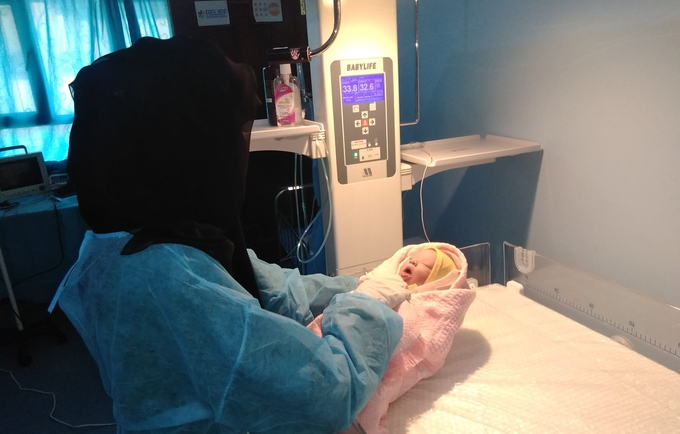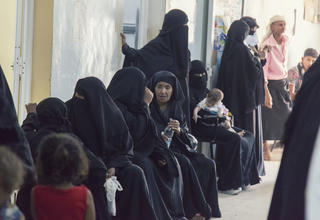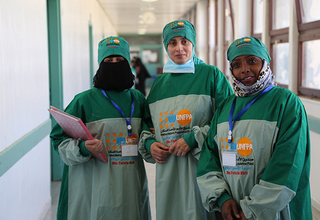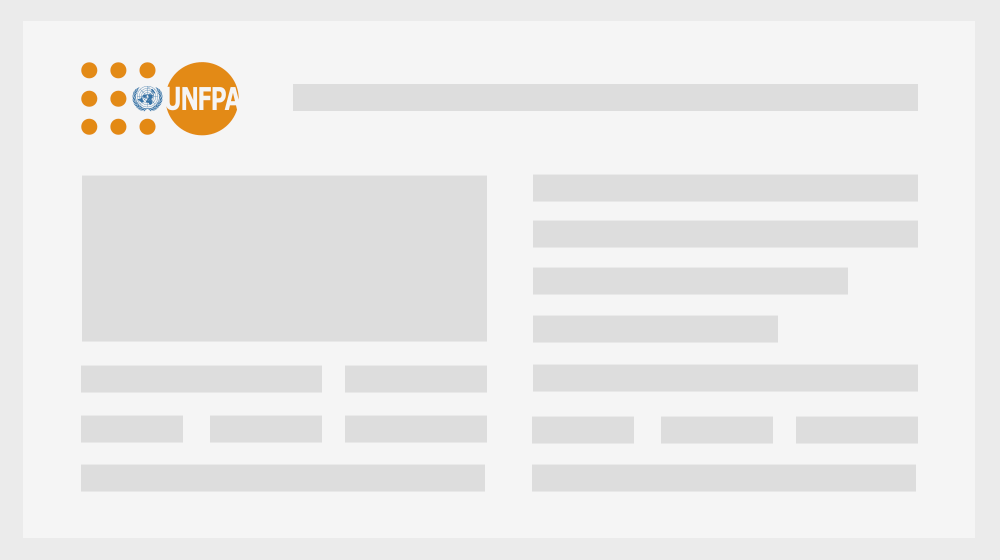Amman/Sana’a –10December2020: A contribution from the European Union (EU) is enabling UNICEF and UNFPA to continue providing vital lifesaving maternal and newborn health care services to the most vulnerable mothers and children in Yemen, at a time when the COVID-19 pandemic is heightening the challenges faced by women and children in accessing health services.
The EU funding of €14 millionwill help UNICEF and UNFPA to provide quality maternal and child health services in 25 hospitals and equip 300 midwives to provide community based maternal and newborn health and family planning services across the country, during a period of three years.
“I am very pleased to announce the launch of this project, focusing on maternal and newborn health care. The EU truly hopes that future generations in Yemen will be allowed to live in a peaceful country with adequate health services, and we need to start laying the foundations for this. Through this project together with our partners, we will focus on the critical health sector that has been severely affected by the conflict and then put under further strain by the spread of Covid-19. This launch marks the start of an important part of the EU’s response to the Covid-19 pandemic and I hope that the support provided will help continue to strengthen the resilience of the Yemeni people,” Said Hans Grundberg, Ambassador of the European Union to Yemen.
“The survival of children and their mothers in Yemen is threatened right from delivery and birth.Many birthshappen out of hospitals, without skilled birth attendants and both mother and child are at risk of multiple complications and ultimately death. Many of the causes of this tragedy are preventable”, said Philippe Duamelle, UNICEF Representative to Yemen. “Thisfinancial support from the European Union will help prevent a significant numberof these unnecessary deaths and give children a better start in life”.
With the EU support, around 45,000 newborns delivered with complications will receive specialized care in supported health facilities; 15,000 pregnant women will receive antenatal care; 35,000 women will deliver with assistance from skilled birth attendants at hospitals, and 54,000 home deliveries will be conducted by community midwives.
“Every day, 12 women die during childbirth in Yemen. These deaths are almost entirely preventable with quality obstetric care for normal and complicated deliveries, as well as family planning services,” stated Nestor Owomuhangi, UNFPA Representative to Yemen. “This contribution will play a pivotal role in reducing maternal and newborn deaths in the country.”
Yemen’s health system is in tatters. Over five years since conflict escalated in March 2015, only around half of health facilities are operational and those that are running face severe shortages in medicine, equipment and staff.
For more information, please contact:
Mohammad HAMMAD, EU Delegation to YemenMohammad.HAMMAD@eeas.europa.eu
Lankani Sikurajapathy, UNFPA Yemen, Tel: +94773411614, sikurajapathy@unfpa.org
Kamal Al-Wazizah, UNICEF Yemen, Tel: +967 712 223 068, kalwazizah@unicef.org




